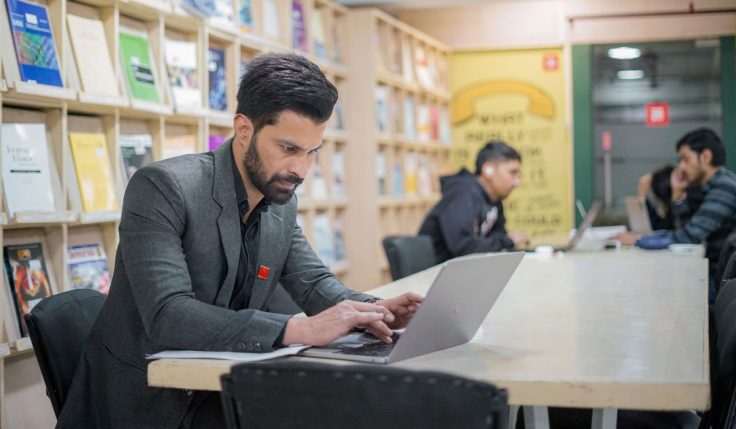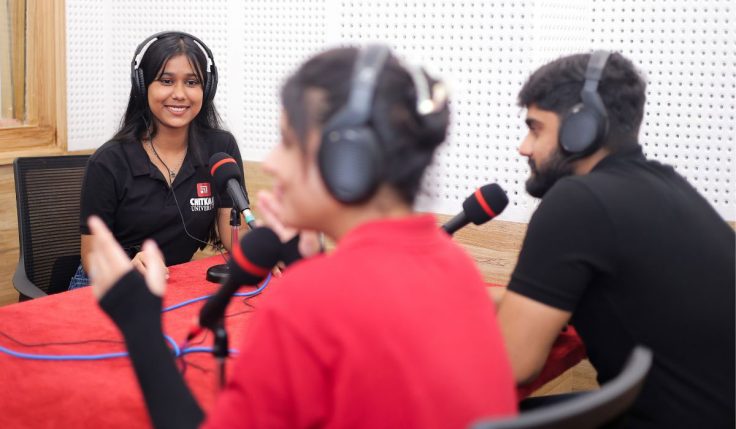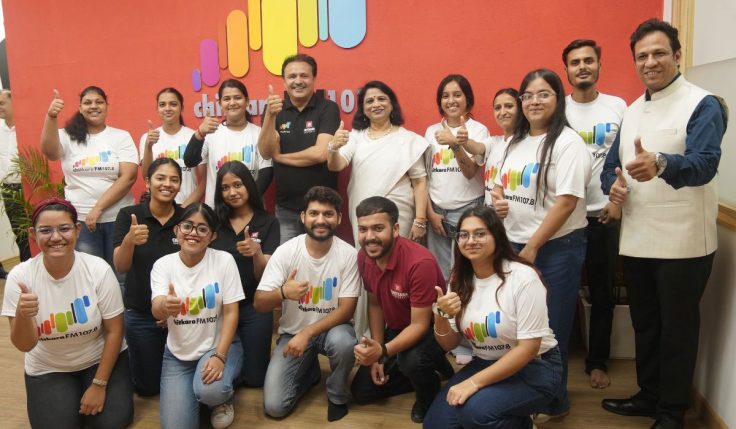With the age of media impacting perception and inducing change in society, it is now more critical than ever that professionals with as high a level of qualifications as they encounter increasingly complex communications environments should be sought. Moreover, for the media professional who seeks advancement in their careers and professional expertise, pursuing a PhD in Journalism and Mass Communication presents several powerfully compelling reasons
Benefits. Here’s why media professionals should pursue this advanced degree:
Deepen Your Expertise
A PhD program informs one extensively in journalism practices, media theories, and communication technologies, with the exposure going to minute details, thus equipping a professional with the thoughts and ability of being critical regarding media ethics, regulations, and the position of the media in society. You might develop expertise greater than what such experience might come from professional encounters by diving into academic literature and studies.
Professional Advancement
The doctoral degree in Journalism and Mass Communication opens up high-level career opportunities, including or related to those opportunities that might not be available if it weren’t for this qualification. Because of this influence for leaders or those teaching the next generation of journalists, it might be very important. This qualification now gives you a better chance for policy development roles, media consultancy, and work with think tanks.
Conduct Transformative Research
This doctoral degree allows you to undertake cutting-edge research projects that contribute to new knowledge in the area. This would include investigating critical media issues, such as digitization of news and media convergence, global communication, and the role of journalism in democracy. Conforming to major research, one can also influence the industry practices and contribute to public policy policies.
Develop Your Teaching and Mentorship Skills
A PhD equips aspiring educators with the ability to teach at universities and colleges. It also refines your skills in articulating complex thoughts, curriculum design, and inspiring future media professionals. Moreover, teaching is a good opportunity for fulfillment and enlightenment as you enlighten insights and change views about the field for the students entering it.
Strengthen Professional Credibility
Having a PhD gives you a degree of authority and respect that should form a remarkably critical impact on your professional credibility. Whether it’s writing, speaking at conferences, or being consulted, expertise brings with it credibility attached to a PhD; you will be the leading voice in media discussions.
In a field as yours, trust and authority build audience engagement and impact.
Access a Global Perspective
Your Academic Community This academic community allows for interfaces with scholars across the globe, enabling engagement with a series of thoughts and practices across the globe. The above perspective regarding international media landscapes is, hence, a fundamental source of enrichment in your comprehension of the same. Such an interface enables prospectivities of collaboration on a global platform, fostering betterment in the development of work through innovative ideas and strategies.
In a nutshell, therefore, the PhD in Journalism and Mass Communication reposes the skills, knowledge, and level of competency that will make differences and change the careers of most media professionals positively within and beyond the industry. The expertise fostered promotes research, boosts one’s credibility, and develops international perspectives; the PhD program thus prepares professionals for answering the ever-changing challenges posed by the media world. Whether you want to lead a media organization, drive a policy agenda, teach future generations of journalists, or create a new model within the industry, this doctoral program can be a step that will help you realize your dreams and leave a lasting impact.
Unlocking New Frontiers in Media: Chitkara University’s PhD in Media Studies
The Doctoral Program in Media Studies by Chitkara University encourages the aspiring media scholars to delve deep into the intricacies of the world of media with expansive research and critical analysis. The intention of this program is to make the students capable of rich knowledge and advanced skills in research work so that they can become transformative scholar advocates for conquering serious issues in journalism, mass communication, and the entire media sector.
Program Overview
The PhD program in Media Studies at Chitkara University focuses on the dynamic exchanges between media institutions and their content with audiences, examining all these elements through lenses of social, economic, political, and technological perspectives. Through engagement with contemporary cultural and critical theory, students shall develop a nuanced understanding of the role media holds in generating meaning in culture.
Key Features:
Interdisciplinary Approach: Engage with a diverse set of theoretical paradigms from social, cultural, and media theories essential for high-quality research.
Focus on New Media Technologies: Explore the influence of new communication technologies and policies, preparing for groundbreaking contributions in the field.
Collaboration with Experts: Work under the guidance of world-class faculty with a commitment to equity in education and a strong background in community engagement and policy work.
Admission Eligibility
To apply for the PhD program in Media Studies at Chitkara University, candidates must meet one of the following criteria in accordance with UGC regulations:
Master’s Degree: Completion of a 1-year/2-semester master’s after a 4-year bachelor’s degree or a 2-year master’s after a 3-year bachelor’s.
Equivalent Qualifications: Recognized by statutory bodies, with a minimum of 55% marks in aggregate.
Bachelor’s Degree: A 4-year degree with 75% aggregate marks and at least 4 years of professional teaching or research experience.
Note: Specific relaxations apply for reserved categories as per UGC norms.
How to Apply
Eligible candidates should submit a completed admission form along with required documents. Applications are screened by a Doctoral Research Committee, and shortlisted candidates will attend a written test and personal interview. Successful applicants will be informed about the program timetable and curriculum details.
Program Fee Structure: (Total INR 4,20,000/-)
Includes enrolment, coursework, seminars, and thesis submission fees, structured to cover all essential academic components.
Program Structure
The curriculum encompasses coursework, research proposal development, ongoing research, and a final thesis defense. The components include:
Core Coursework: Advanced methodologies, doctoral seminars, and ethics in research.
Research Progress: Regular biannual reviews with guidance from the Doctoral Research Committee to ensure timely and effective research development.
What to Expect
Chitkara University’s PhD program offers more than traditional academic growth; it aims to develop transferable skills suitable for diverse career opportunities beyond academia.
Research and Networking Benefits:
- Present your research at renowned conferences, gaining visibility among international scholars and experts.
- Collaborate in a conducive research environment, promoting innovative solutions through teamwork.
Concentrations Offered
- Radio and TV Journalism
- Advertising and Public Relations
- Film Studies
- Digital Media
- Print Journalism
- Photography
- Cinematography
- Corporate Communication
Also, read this blog post: Top 7 Things to Consider Before Doing a Ph.D. While Working
Embark on a journey that challenges conventional media wisdom and prepares you for leadership roles in academia, consulting, and media policy. With Chitkara University’s PhD in Media Studies, you’ll gain the tools and insights to influence both media practices and public discourse globally. Start shaping the future of media with cutting-edge research and innovation.






